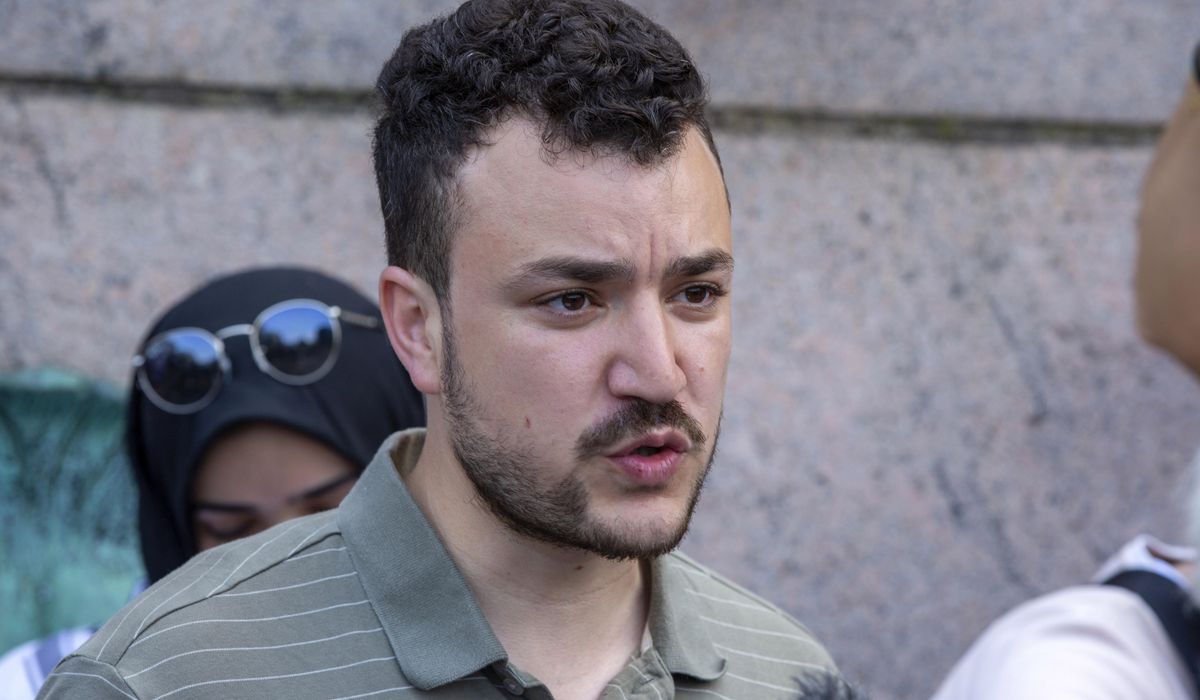


A federal judge has ordered the Trump administration to release prominent Palestinian student Mahmoud Khalil from immigration detention, ruling he is not a flight risk as he fights to stop his deportation.
Mr. Khalil was one of the leaders of pro-Palestinian protests at Columbia University and became a chief target for the Trump administration in its effort to try to deport people it said were undermining U.S. foreign policy with antisemitic behavior.
He has been held at a U.S. Immigration and Customs Enforcement detention center in Louisiana for three months and missed the birth of his child. He has labeled himself a “political prisoner.”
Judge Michael Farbiarz said he must be released Friday.
He said it was “highly unusual” for the government to seek to detain someone who is a legal permanent resident and who is facing deportation on the grounds that he was misleading in his immigration application. The judge said that case can proceed while Mr. Khalil is free.
Several other high-profile anti-Israel foreign students also have won orders of release, though Mr. Khalil’s case is perhaps the highest profile.
His defenders said the administration was singling him out for his views on the Israel-Gaza conflict, which they said was unconstitutional.
The ruling drew praise from immigration activists.
“Khalil’s story will be a lesson to be studied by future generations on the rise of Trump’s authoritarianism,” said Murad Awawdeh, president of the New York Immigration Coalition. “The government’s case against Khalil must now be thrown out, so that he can freely return to his family, work and life in New York.”
Mr. Awawdeh accused the Trump administration of running a “mass disappearance machine.”
Homeland Security had offered two reasons for trying to deport Mr. Khalil.
The first was a ruling by Secretary of State Marco Rubio that Mr. Khalil’s activities undermined U.S. foreign policy. Judge Farbiarz has said that is unconstitutionally vague.
The second was the errors on the immigration application.
Judge Farbiarz’s ruling Friday doesn’t mean Mr. Khalil can’t be deported on those grounds, but it does mean he can’t be detained the whole time he’s fighting his case in immigration court.
President Trump has complained about court interference in his deportation policies, saying it would be unfathomable for the millions of illegal immigrants he wants to deport to have a chance to challenge their removals in regular courts.
His administration argues they have a chance to bring those challenges in immigration courts instead.
• Stephen Dinan can be reached at sdinan@washingtontimes.com.
